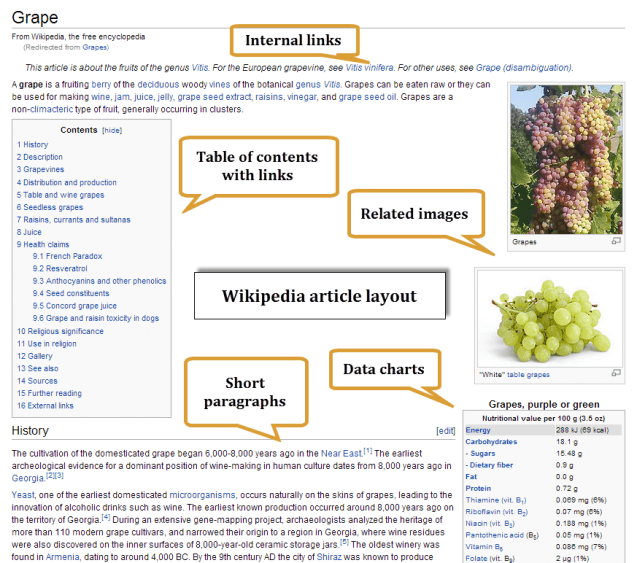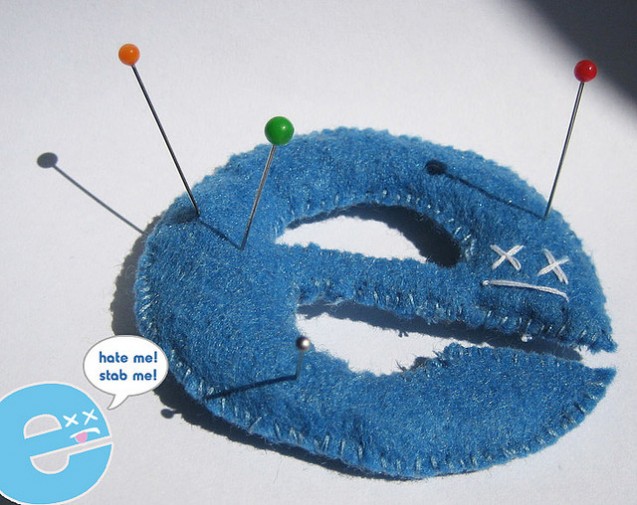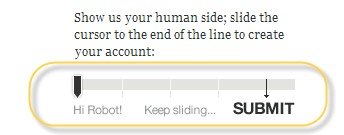We see dozens of guides and tutorials on how we should make our websites better to rank, convert, and perform. On the other hand, there’s so much wrong-doing, it can be easier for you to STOP doing some things to get better results with your online presence. Below I’ve outlined the 17 most popular “sins” I’ve identified on my customers’ websites within the last 2 years.

1. Stop posting pathetic useless promotional content
I do realize, some “boring niche” companies find it pretty hard to create a content strategy and produce fascinating content on a regular basis… But it’s not an excuse for publishing something-of-no-use to anyone. The frequency doesn’t matter that much, focus on the needs of your users, customers and followers. Need inspiration? Take a look at these companies creating great content on “boring” topics.
2. Stop stealing lame stock images – they are not so super effective anyway
Yes, you got me right – there’s not much sense in stealing stock images. On the one hand, you are abusing someone’s copyright. On the other, many stock photos look rather lame and boring (I just can’t stand anymore the pictures of a team of professionally smiling people).

Sorry, I don’t believe these guys 🙂
Dozens of studies and experiments prove that users are more attracted by amateur pictures that look true-to-life, though they can miss a polished glamorous look. As James Chudley put in his guide on using photos to sell:
- Show off your product’s benefits
- Make visitors laugh
- Tell a story and show how to do something (step-by-step guides with pictures simply rock!)
- Be consistent and professional.
3. Stop ignoring your readers
I’ve seen it everywhere – an interesting post with great points and a dozen of user comments that are left unnoticed. Isn’t the author interested in what readers think? Why not answer their questions, if any? Or, if you didn’t plan to spend time on comment discussions, why did you decide to have a commenting module in the first place?
Talk to your readers, appreciate their opinion, ask them questions, give them links to the related content – this is the way to build up a healthy community!
4. Stop using big words
If your target audience comprises mostly PhDs, then I may be wrong. If not, consider using simpler wording for your website copy and blog posts. Here are just some examples to give you the idea:
use instead of utilize
near instead of close proximity
help instead of facilitate
for instead of in the amount of
start instead of commence
And since I mentioned the topic of words, don’t forget the mighty five: you, free, because, instantly, new – they won’t do any magic to your pages, but they proved to be more effective regarding conversion rates.
5. Stop writing “novels”
Users scan texts – it’s a well-known fact still ignored by the majority of bloggers and website owners. Why? Sometimes, because they’ve heard that for the sake of SEO, they should have a lot of text… Or they wanted to write more than their competitors…
Whatever the reason, the result can be pretty sad – your page bounce rates will escalate with the amount of plain unformatted text.
But what to do if you need to cover a large topic? First of all, think of a Wikipedia style and use:
- Table of contents
- Internal links
- Relevant images and photos
- Make paragraphs concise and short (1 idea per paragraph)
- Format the page to make it easy to scan

Additionally, you can split really large articles into parts – just don’t forget to link the posts with one another.
6. Stop using tiny fonts
Well not only tiny, the yellow text on the blue background would make me close the page even faster. The thing is that many websites are designed by designers (and it is logical), however some designers underestimate the importance of text and implement smaller fonts. As a result, we get a beautiful page, but a page we don’t want to read (and even scan).
Did you know that making your content font size a bit larger can even impact the conversion rate?
7. Stop requiring a registration unless it’s really necessary
Users naturally avoid situations they feel might compromise their privacy. Asking them to register is one of such situations they feel skeptical about. Mike Fisher makes a very good point on registration in his post:
If you need to require registration, make sure that users
- Understand what they’re getting after registering
- Believe it’s of significant value to them
- Know that their personal information will be safeguarded
Offering users to register with their existing Facebook/Twitter accounts can be a good idea, as it simplifies the procedure, however you should still remember the three points mentioned above.
8. Stop overusing Flash
Just a couple of days ago I discussed a website redesign with the owner of a small dog food shop. When I asked how she wanted the website to look like, she replied:
“I guess there should be some long red curtains and you have to click to open them. After that you’ll find yourself in a cinema hall where dogs and cats are sitting and watching a film about the food for cats and dogs.”
Well, the idea itself may be not so brilliant, but we realize that in most case we’ll need to use the Adobe Flash technology to create something of this kind, which is NOT search-engine-friendly. On the other hand, will this fascinating Flash intro persuade me to purchase more items? I think a smart offer or a coupon discount would work much better!
9. Stop blending advertising within the content
It’s a little bit frustrating to be lured by an interesting guide or a case study to find out you are just being offered a new copywriting course, an SEO e-book, or paid consulting. Even when you run a pay-per-click campaign, do not lie to users in ad copies – their frustration will fire back so hard.
10. Stop testing your website in 1 browser only
Pretty self-explanatory. No matter how rare you use IE, it’s still very popular with users.

11. Stop using unreadable captchas
There are some horrible captchas out there… Fortunately, you can use some friendlier versions of them, like these ones:

12. Stop being afraid of linking out
We should blame the search engines for this one – there were times when people where linking out to the related useful content they wanted to share with the users. Now, what we have today is the COMMON belief in BAD external links. How much PR am I going to lose? What kind of anchor should I choose?
Does this website link back to me? Or maybe I’ll just mention it in text without inserting a link?! Now take a look at Wikipedia articles and you’ll get the answers. Linking out is totally fine.
13. Stop ignoring the social mentions of your website
Here’s the big truth: even if you don’t have any website-related accounts in social media, you can still be discussed there! Sometimes, you just need to search for your website mentions (either directly or setting up specific alerts with the tools, e.g. BuzzBundle) to discover positive, neutral and negative comments and discussions.
14. Stop cluttering pages with badges and counters
Well, you can showcase your awards and achievements on the “About” page, but it’s not a good idea to clutter all pages with this information. And most users do not care if they are number 159,780.
15. Stop lying to customers
This one’s crucial: when you lie to your customers (for instance, do not disclose full payment details), it can cause a catastrophe, burst out on dozens of forums and blogs where people would describe you as a scammer and discourage others from using your service/product.

16. Stop auto-playing video and audio
That’s annoying and feels like my private space is being violated – I want to decide myself whether I want to watch or listen to anything on your website.
17. Stop planning – start doing
There’s a lot of internet marketing and strategy dropped on you daily – dozens of ideas and plans to implement. The big question is – are you doing it? Some people take planning so seriously, they never get down to actually implementing the useful stuff. If this is about you – stop planning and start doing something right away, this is the only way to see what really works and make things work better for you.
So what do you think, which sins are worst and which ones you’d like to add to this list?




